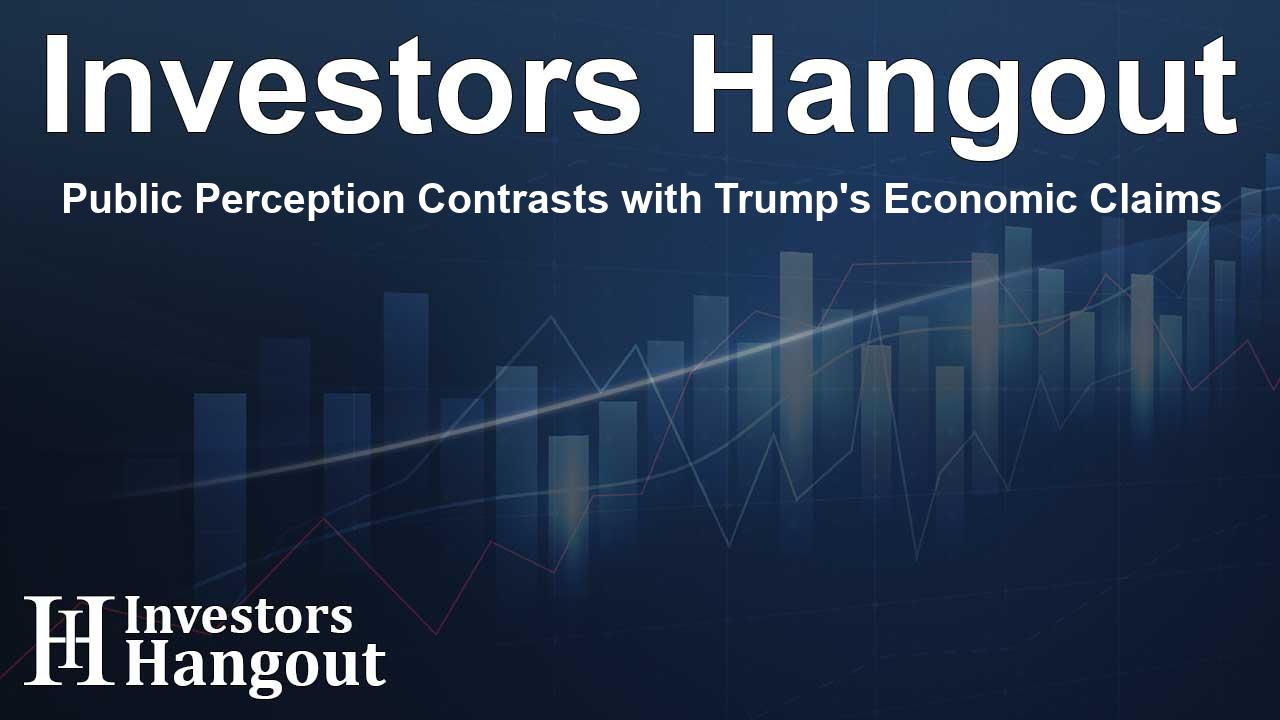Public Perception Contrasts with Trump's Economic Claims

Trump's Economic Narrative vs. Public Sentiment
The U.S. economy is touted as a success by President Donald Trump, yet this assertion does not resonate with many American voters.
Government Claims vs. Reality
President Trump has vigorously championed the strides made in the economy, citing impressive growth in recent months, lower gas prices, and the passage of his significant tax reform. However, the reality is more complex, as reports reveal that many citizens feel anxious about financial stability and rising costs.
Concerns Over Rising Prices
Despite statistics suggesting economic growth, surveys indicate that Americans remain deeply concerned about escalating prices and the overall resilience of the economy. Insiders note that despite these highlights, the government’s optimism is not reflected in public opinion.
Mixed Reactions Towards New Policies
The Congressional office has stated that recent legislative measures will have minimal impact on economic growth before the next election cycle. This, they believe, is partly due to the president's tariffs and strict immigration policies affecting various sectors.
Public Skepticism Remains
White House officials are optimistic that public sentiment may shift as their policies take effect. However, skepticism lingers, highlighted by a recent poll showing only 36% of Americans consider the economy to be in good shape.
Persistent Challenges in Economic Indicators
Recently, the president reiterated that Americans are experiencing the best economy in history. Nevertheless, the administration struggles to align its narrative with the public’s experience, facing obstacles similar to those encountered by prior administrations.
Employment and Inflation Issues
While the government emphasizes positive aspects, signs indicate the economy could be underperforming. The latest jobs report was disappointing, inflation rates surpassed the Federal Reserve’s target, and unemployment claims have hit levels not seen since late 2021.
The Implications for Upcoming Elections
This disconnect between the government’s portrayal and public perception may heavily influence future electoral outcomes. The inability to convince voters about the economic landscape could lead to repercussions during election cycles.
Moving Forward
As the administration steps into a critical period, the dual narratives of optimism versus concern will continue to shape the political landscape and voter behavior moving forward.
Frequently Asked Questions
What does President Trump say about the economy?
President Trump promotes a narrative of economic success, citing growth and lower gas prices.
How do Americans feel about the economy?
Many Americans express skepticism, citing worries about rising prices and economic stability.
What impact do tariffs have on economic growth?
The administration believes tariffs are necessary, but critics argue they could hinder growth and recovery.
Why is public sentiment important for elections?
Public perception of the economy can significantly influence voter behavior and election results.
Are economic indicators fully reliable?
While they provide insights, economic indicators can sometimes misalign with the average citizen's experiences.
About The Author
Contact Riley Hayes privately here. Or send an email with ATTN: Riley Hayes as the subject to contact@investorshangout.com.
About Investors Hangout
Investors Hangout is a leading online stock forum for financial discussion and learning, offering a wide range of free tools and resources. It draws in traders of all levels, who exchange market knowledge, investigate trading tactics, and keep an eye on industry developments in real time. Featuring financial articles, stock message boards, quotes, charts, company profiles, and live news updates. Through cooperative learning and a wealth of informational resources, it helps users from novices creating their first portfolios to experts honing their techniques. Join Investors Hangout today: https://investorshangout.com/
The content of this article is based on factual, publicly available information and does not represent legal, financial, or investment advice. Investors Hangout does not offer financial advice, and the author is not a licensed financial advisor. Consult a qualified advisor before making any financial or investment decisions based on this article. This article should not be considered advice to purchase, sell, or hold any securities or other investments. If any of the material provided here is inaccurate, please contact us for corrections.
